Filter by
SubjectRequired
LanguageRequired
The language used throughout the course, in both instruction and assessments.
Learning ProductRequired
LevelRequired
DurationRequired
SkillsRequired
SubtitlesRequired
EducatorRequired
Explore the Deep Reinforcement Learning Course Catalog
 Status: Free Trial
Status: Free TrialUniversity of Alberta
Skills you'll gain: Reinforcement Learning, Machine Learning, Sampling (Statistics), Artificial Intelligence and Machine Learning (AI/ML), Artificial Intelligence, Machine Learning Algorithms, Deep Learning, Simulations, Feature Engineering, Markov Model, Supervised Learning, Algorithms, Artificial Neural Networks, Performance Testing, Linear Algebra, Performance Tuning, Predictive Modeling, Pseudocode, Probability Distribution
 Status: Free Trial
Status: Free TrialUniversity of Alberta
Skills you'll gain: Reinforcement Learning, Machine Learning, Artificial Intelligence, Markov Model, Algorithms, Linear Algebra, Probability Distribution
 Status: NewStatus: Free Trial
Status: NewStatus: Free TrialPearson
Skills you'll gain: Large Language Modeling, Deep Learning, Prompt Engineering, Image Analysis, PyTorch (Machine Learning Library), Tensorflow, LLM Application, Computer Vision, Responsible AI, Natural Language Processing, Generative AI, Artificial Neural Networks, Data Ethics, Multimodal Prompts, Artificial Intelligence and Machine Learning (AI/ML), Applied Machine Learning, Machine Learning Methods, Artificial Intelligence, Application Deployment, Time Series Analysis and Forecasting
 Status: NewStatus: Free Trial
Status: NewStatus: Free TrialSkills you'll gain: Apache Spark, Keras (Neural Network Library), Deep Learning, Tensorflow, A/B Testing, Big Data, Data Ethics, Applied Machine Learning, Data Processing, Machine Learning Software, Artificial Neural Networks, Machine Learning Algorithms, Data Cleansing, Machine Learning, MLOps (Machine Learning Operations), Supervised Learning, Artificial Intelligence, Statistical Hypothesis Testing, Dimensionality Reduction, Reinforcement Learning
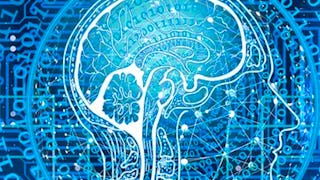 Status: Free Trial
Status: Free TrialSkills you'll gain: Reinforcement Learning, Generative Model Architectures, Deep Learning, Unsupervised Learning, Image Analysis, Artificial Neural Networks, Keras (Neural Network Library), Machine Learning Algorithms, Machine Learning, Artificial Intelligence, Computer Vision, Applied Machine Learning, Dimensionality Reduction, Natural Language Processing
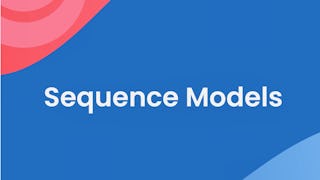 Status: Free Trial
Status: Free TrialDeepLearning.AI
Skills you'll gain: Natural Language Processing, Generative AI, Artificial Neural Networks, Tensorflow, Large Language Modeling, Artificial Intelligence and Machine Learning (AI/ML), PyTorch (Machine Learning Library), Deep Learning, Supervised Learning
What brings you to Coursera today?
 Status: NewStatus: Preview
Status: NewStatus: PreviewMathWorks
Skills you'll gain: Reinforcement Learning, Artificial Intelligence and Machine Learning (AI/ML), Artificial Neural Networks, Applied Machine Learning, Machine Learning, Control Systems, Simulations
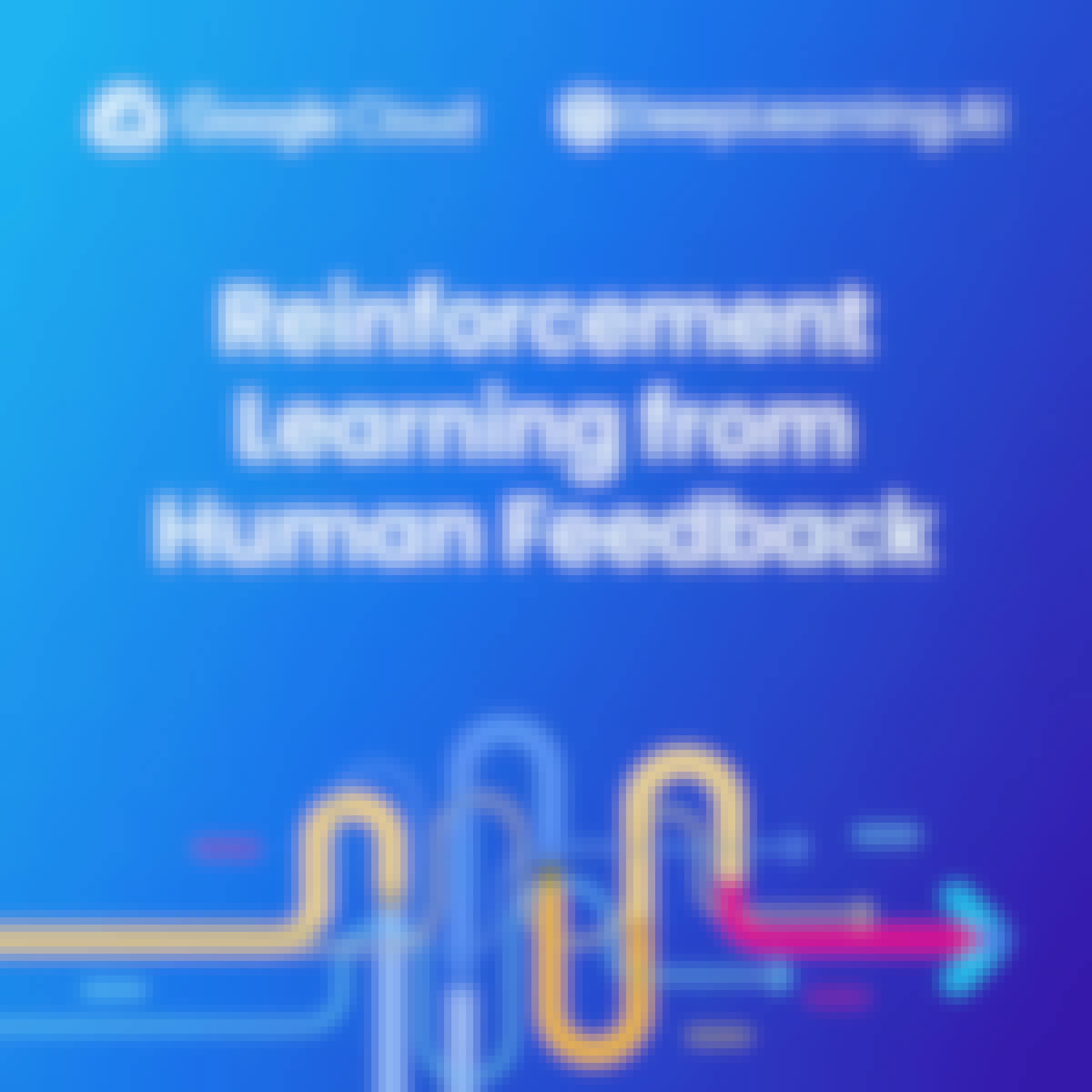 Status: Free
Status: FreeDeepLearning.AI
Skills you'll gain: LLM Application, Large Language Modeling, Prompt Engineering, Reinforcement Learning, Machine Learning Methods
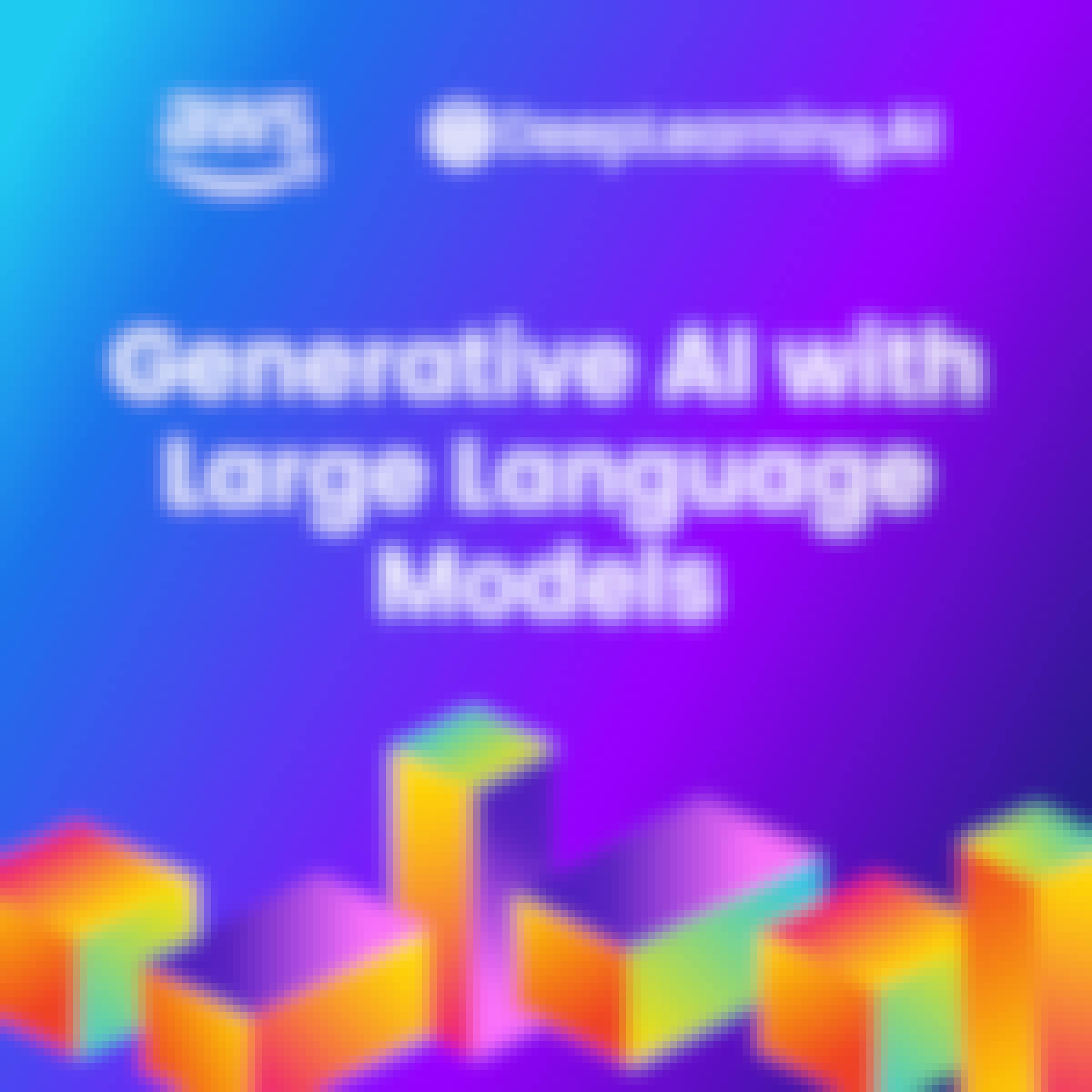 Status: Preview
Status: PreviewDeepLearning.AI
Skills you'll gain: Generative AI, Large Language Modeling, Prompt Engineering, PyTorch (Machine Learning Library), Python Programming, Applied Machine Learning, Scalability, Natural Language Processing, Responsible AI, Machine Learning, Reinforcement Learning, Performance Tuning
 Status: NewStatus: Free Trial
Status: NewStatus: Free TrialSkills you'll gain: Generative Model Architectures, Generative AI, OpenAI, Large Language Modeling, Prompt Engineering, Artificial Neural Networks, Deep Learning, Natural Language Processing, Machine Learning Methods
 Status: Free Trial
Status: Free TrialNew York University
Skills you'll gain: Reinforcement Learning, Financial Trading, Financial Market, Derivatives, Markov Model, Financial Modeling, Securities Trading, Portfolio Management, Risk Management, Market Dynamics, Machine Learning, Estimation
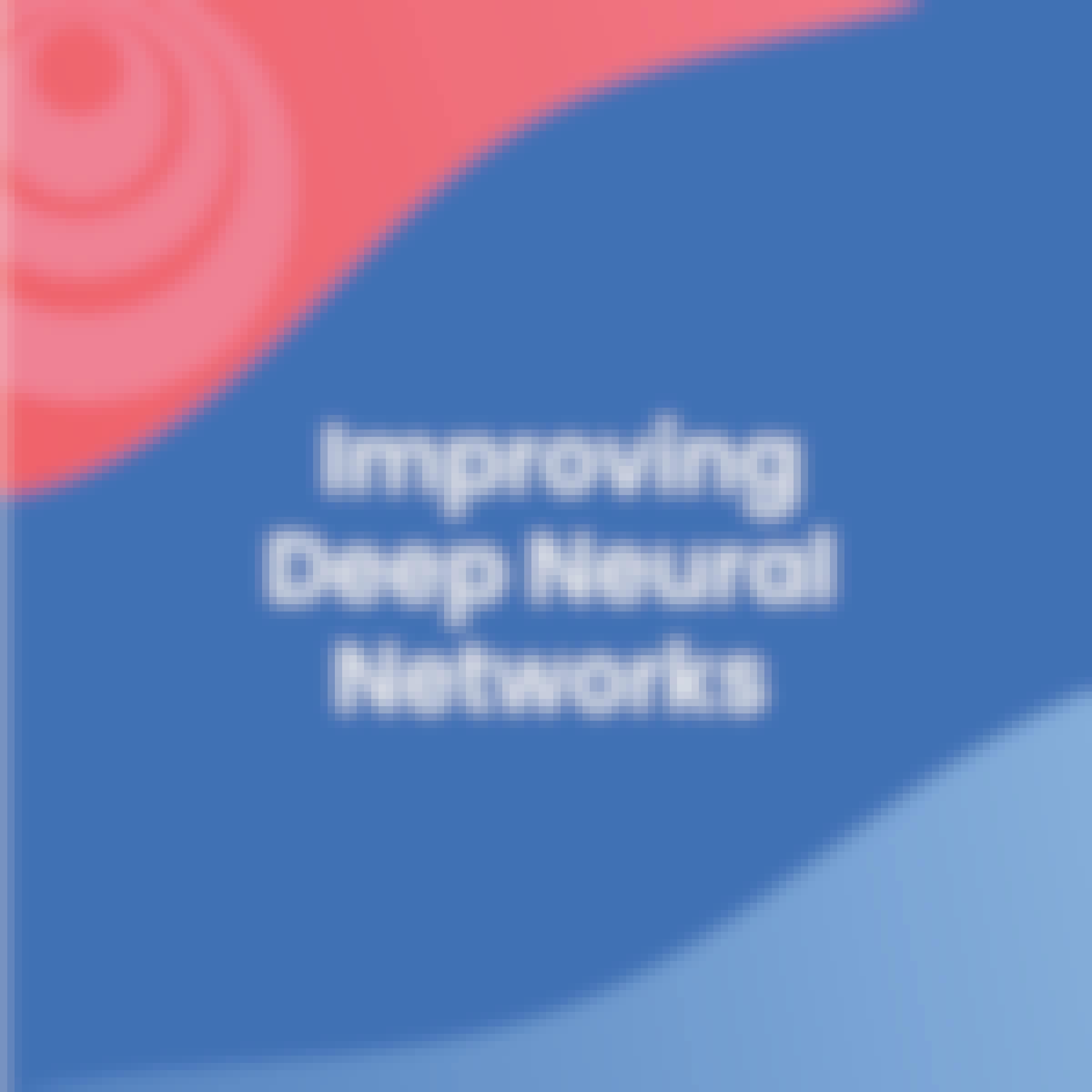 Status: Free Trial
Status: Free TrialDeepLearning.AI
Skills you'll gain: Tensorflow, Deep Learning, Artificial Intelligence and Machine Learning (AI/ML), Performance Tuning, Artificial Neural Networks, Applied Machine Learning, Supervised Learning, Machine Learning Algorithms
Deep Reinforcement Learning learners also search
In summary, here are 10 of our most popular deep reinforcement learning courses
- Reinforcement Learning: University of Alberta
- Fundamentals of Reinforcement Learning: University of Alberta
- Learning Deep Learning: Pearson
- Advanced Machine Learning, Big Data, and Deep Learning: Packt
- Deep Learning and Reinforcement Learning: IBM
- Sequence Models: DeepLearning.AI
- Reinforcement Learning: MathWorks
- Reinforcement Learning from Human Feedback: DeepLearning.AI
- Generative AI with Large Language Models: DeepLearning.AI
- Attention Mechanisms and Transformer Models Course: Simplilearn










